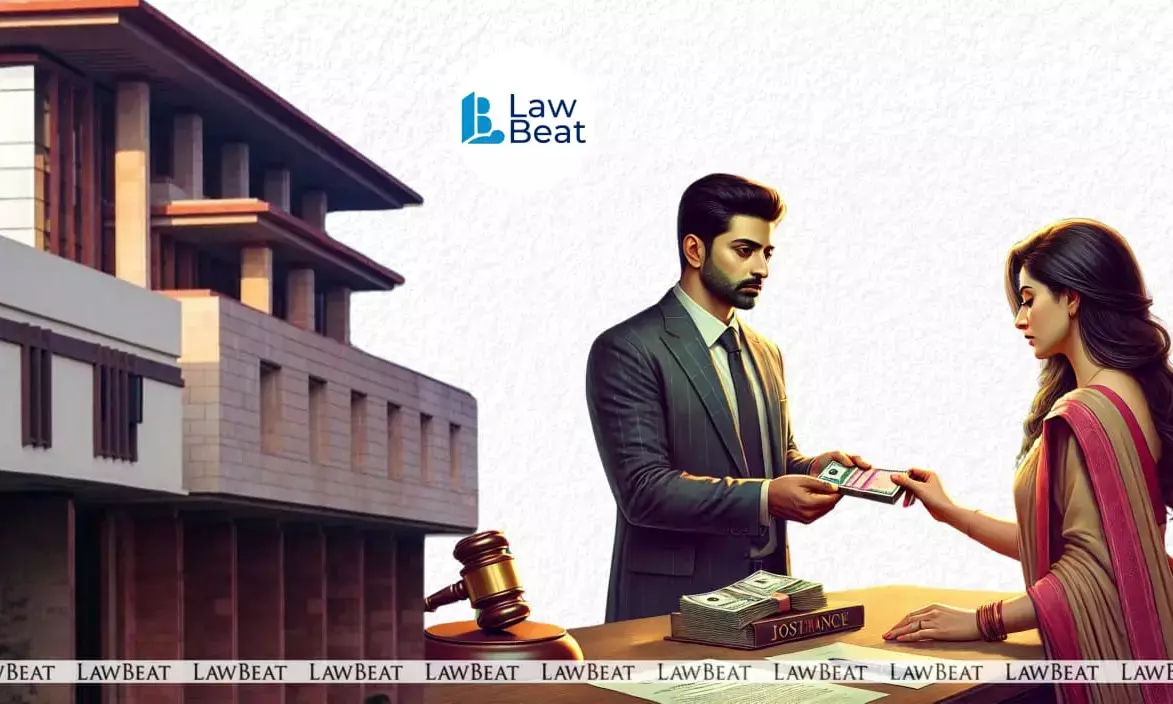Rise in Husband’s Income and Cost of Living Justifies Higher Maintenance for Wife, Rules Delhi HC

Rise in Husband’s Income and Cost of Living Justifies Higher Maintenance for Wife, Rules Delhi HC
The Delhi High Court has held that an increase in a husband’s income, coupled with the significant rise in the cost of living, constitutes a clear change in circumstances warranting enhancement of maintenance to his estranged wife.
Justice Swarana Kanta Sharma passed the order while dealing with a petition filed by a 60-year-old woman challenging a Family Court decision from the South District, Saket, which had dismissed her plea for higher maintenance from her 70-year-old husband.
The couple married on April 28, 1990. The woman alleged that she faced physical and mental harassment, including dowry demands, and that her husband deserted her in February 1992. Thereafter, he began living with his parents. Records show he filed a petition for restitution of conjugal rights, which was dismissed in 1997, followed by a divorce petition in 2001. In that case, the court awarded the wife interim maintenance of Rs 3,000 under Section 24 of the Hindu Marriage Act. In 2009, interim maintenance was raised to Rs 5,000 per month. The divorce petition itself was dismissed in 2011.
The woman’s father supported her financially until his death in 2017, after which she became completely dependent on maintenance. In 2012, the Family Court directed the husband to pay Rs 10,000 per month. In 2018, she sought an increase to Rs 30,000, citing her husband’s promotion from TGT to PGT, the resulting rise in salary, and the implementation of the 7th Pay Commission.
She also noted that although her husband formally retired in July 2017, he continued in service on extension for another two years. She further submitted that her medical expenses had increased due to arthritis and thyroid ailments, leaving her without any other financial support following her father’s demise.
The Family Court, however, dismissed her plea, holding that there was no substantial change in the husband’s financial position. It noted that his gross salary in 2012 had been Rs 45,455, while his pension now stood at Rs 40,068, which, in its view, did not justify an enhancement.
Before the High Court, counsel for the wife argued that the Family Court had erred by comparing gross salary with pension. He pointed out that in 2012, maintenance was fixed against the husband’s net salary of around Rs 28,000, whereas his present pension exceeded Rs 40,000. He also submitted that she had not been provided with a CGHS or DGHS card by her husband and was forced to bear the cost of medical treatment from her limited resources.
The husband’s counsel opposed the plea, arguing that the respondent, now 70, was a retired man living alone with limited means. He contended that the petitioner had produced no evidence of substantial medical expenses, particularly when consultation and medicines at government hospitals were available free of cost. He further stressed that the husband had been paying maintenance since 1994, over three decades, while the wife had neither resumed cohabitation nor sought divorce.
Justice Sharma observed that although both parties were senior citizens and separated for more than three decades, they remained bound in law as husband and wife. The court noted that the amount fixed in 2012 could not remain adequate in 2025, given inflation and the rise in the husband’s income.
“The rise in his income, coupled with the significant increase in the cost of living, constitutes a clear change in circumstances warranting enhancement of maintenance,” the judge said.
The court further held that the wife’s entitlement to a CGHS/DGHS card was a valuable right flowing from the marital relationship. It noted that deletion of her name could not be justified merely because she sought treatment in a government hospital. “The card provides access to several other facilities, including specialized consultations and emergency medical assistance, which become indispensable in old age,” the court said, directing that the wife’s name be restored to the husband’s CGHS card.
Court said it was mindful of the husband’s advanced age and limited resources. Balancing the equities, it enhanced the wife’s maintenance to Rs 14,000 per month, with effect from the date of filing of the revision petition. The arrears at the enhanced rate are to be cleared within six weeks.
Case Title: X vs Y
Date of Judgment: 1 September 2025
Bench: Justice Swarana Kanta Sharma
